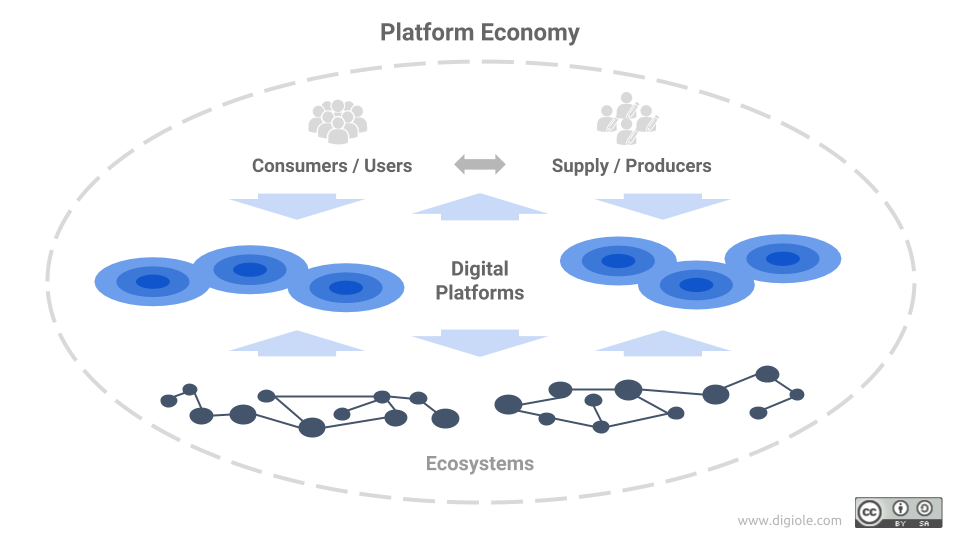Why the answer to a more sustainable future could lie within the platform economy

Platform companies are great test beds for new ideas and initiatives owing to their entrepreneurial nature
Image: REUTERS/Jason Reed
Stay up to date:
New Growth Models
There is growing public urgency on issues such as climate change and calls for more sustainable solutions to secure a more positive future. Whilst legislators are mired in considerations of political practicality, sometimes unable to reach quick consensus on complex global issues, businesses are well-positioned, and in many cases ready, to enact effective change and fast.
While the actions and reactions of governments on sustainability issues garner much attention, businesses don’t have to wait to make real and impactful change. As many companies look to scale their sustainability efforts, there are lessons that can be learned from the proactive, agile and intrinsic approach platform businesses take when it comes to implementing widespread, effective and meaningful change.
Here are just three examples of what the platform economy can teach us:
The ability of the platform economy to scale and react at speed is the reason Big Tech sits at the top of the leader board across the world’s stock markets. It’s also a capability that’s well suited to tackling urgent global issues by introducing new approaches and innovative concepts.
The instinctively innovative and entrepreneurial nature of platform companies means they are great test beds for new ideas and initiatives. They are well placed to be a force for good and can easily drive new sustainable solutions and ideas as part of normal business development.
Platform businesses often don’t hesitate to try new things and we see them proactively testing new sustainable solutions and processes, often before they are asked to by policy-makers. Where these tests result in success, the nature of platforms means that solutions can be scaled quickly across the business.
Great recent examples include initiatives from Deliveroo, which has trialled and scaled its “opt for cutlery” feature following its quick success, while Rent the Runway has introduced environmentally-friendly dry cleaning processes across its whole business, going further than the standards set by regulators.
By adopting the entrepreneurial mindset of a platform business and not being afraid to trial new things, all businesses have the ability to take the lead in finding new solutions and help us save precious time in delivering and securing a more sustainable future.

Businesses are increasingly focusing on the relationship between sustainability and long-term corporate health. As platforms have emerged, so has a new, ingrained culture and positive attitude towards sustainability. For many platform companies, sustainability has been a consideration from day one and is part of their DNA. It is embedded in their brand, operations - and often expected by their customers (regardless of the product or the service).
Making sustainability an inherent part of who you are, not just something you do, as platform businesses have done, means that businesses can ensure sustainability is a consideration at all points. Platforms have shown us how making sustainability a part of every decision, action and conversation can expand the positive impact a business can have, without creating a burden.
More traditional companies are often working to reactively copy and retro-fit approaches to sustainability. They have been slower to recognise the impact of day-to-day operations from a sustainability perspective. Packaging, where plastics and other unsustainable materials have featured heavily, and waste disposal, which revolved around landfill or disposal through incineration for a long time, are prime examples of this.
Broadly speaking, traditional businesses have been more financially-driven in their approach than the more modern platform companies we see coming through. But they are increasingly realising that the investor community is not the only community that must be considered when it comes to business models and operations - consumers and policy-makers matter, too.
A crucial advantage of the platform economy is its unparalleled connectivity. A web of global customers, commercial partnerships and collaborations with other technology firms – from start-ups to multinationals – allows organizations to rapidly disseminate their ideas, policies and solutions, and call on a broad base of expertise, knowledge and resources.
One of my favourite examples of this is the collaboration between eBay, Google, Facebook and leading animal welfare charities to help reduce the black market trade for prohibited products such as ivory, where simply outlawing the practice hasn’t worked so far.
What is the World Economic Forum's India Economic Summit 2019?
In the travel industry, platforms like Booking.com are well placed to foster such collaboration. I have seen first-hand how it can bring forward innovative and collective solutions. The recently launched Travlyst Programme, a global initiative founded by Booking.com, Ctrip, Skyscanner, TripAdvisor and Visa with the ambition to change the impact of travel for good, is a great example of how platforms, businesses and thought leaders are coming together to protect and promote a positive future for travellers, destinations and local communities alike.
Whether it’s a bold approach to trying new things, working collaboratively or refocusing the corporate culture to help embed sustainability in the day-to-day, there is plenty that can be done to help us secure a more positive future - and platform businesses can show us the way.
Don't miss any update on this topic
Create a free account and access your personalized content collection with our latest publications and analyses.
License and Republishing
World Economic Forum articles may be republished in accordance with the Creative Commons Attribution-NonCommercial-NoDerivatives 4.0 International Public License, and in accordance with our Terms of Use.
The views expressed in this article are those of the author alone and not the World Economic Forum.
Related topics:
Forum Stories newsletter
Bringing you weekly curated insights and analysis on the global issues that matter.
More on Economic GrowthSee all
Cameron Munter and Jan Ruzicka
February 18, 2025
Juan Caballero and Marco Fengler
February 18, 2025
John Letzing
February 13, 2025
Robin Pomeroy and Natalie Marchant
February 10, 2025
Rebecca Geldard
February 7, 2025




